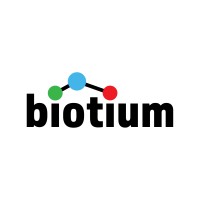Bcl-10 / CF594 / BL10/2988R
Product Details
| Description | BCL-10 Recombinant Monoclonal Rabbit Antibody (BL10/2988R) | |
|---|---|---|
| Conjugate | CF594 | |
| Clone | BL10/2988R | |
| Target Species | Human | |
| Applications | IHC-P | |
| Supplier | Biotium | |
| Catalog # | Sign in to view product details, citations, and spectra | |
| Size | ||
| Price | ||
| Antigen | ||
| Host | ||
| Isotype |
About Bcl-10
This gene was identified by its translocation in a case of mucosa-associated lymphoid tissue (MALT) lymphoma. The protein encoded by this gene contains a caspase recruitment domain (CARD), and has been shown to induce apoptosis and to activate NF-kappaB. This protein is reported to interact with other CARD domain containing proteins including CARD9, 10, 11 and 14, which are thought to function as upstream regulators in NF-kappaB signaling. This protein is found to form a complex with MALT1, a protein encoded by another gene known to be translocated in MALT lymphoma. MALT1 and this protein are thought to synergize in the activation of NF-kappaB, and the deregulation of either of them may contribute to the same pathogenetic process that leads to the malignancy. Alternative splicing results in multiple transcript variants. [provided by RefSeq, Mar 2016]
This gene was identified by its translocation in a case of mucosa-associated lymphoid tissue (MALT) lymphoma. The protein encoded by this gene contains a caspase recruitment domain (CARD), and has been shown to induce apoptosis and to activate NF-kappaB. This protein is reported to interact with other CARD domain containing proteins including CARD9, 10, 11 and 14, which are thought to function as upstream regulators in NF-kappaB signaling. This protein is found to form a complex with MALT1, a protein encoded by another gene known to be translocated in MALT lymphoma. MALT1 and this protein are thought to synergize in the activation of NF-kappaB, and the deregulation of either of them may contribute to the same pathogenetic process that leads to the malignancy. Alternative splicing results in multiple transcript variants. [provided by RefSeq, Mar 2016]
About CF594
CF®594 from Biotium is a fluorophore with an excitation peak at 593 nm and an emission peak at 614 nm. It can be useful in both fluorescence microscopy and flow cytometry. It is spectrally similar to Alexa Fluor™ 594, DyLight™ 594 and Texas Red. However, in flow cytometry, PE-CF®594 and PE-Dazzle 594 are superior alternatives. In microscopy, CF®594 has been validated in STED and 2-Photon microscopy.
CF®594 from Biotium is a fluorophore with an excitation peak at 593 nm and an emission peak at 614 nm. It can be useful in both fluorescence microscopy and flow cytometry. It is spectrally similar to Alexa Fluor™ 594, DyLight™ 594 and Texas Red. However, in flow cytometry, PE-CF®594 and PE-Dazzle 594 are superior alternatives. In microscopy, CF®594 has been validated in STED and 2-Photon microscopy.
Experiment Design Tools
Panel Builders
Looking to design a Microscopy or Flow Cytometry experiment?
Validation References
Reviews & Ratings
| Reviews |
|---|
Looking for more options?
695 Bcl-10 antibodies from over 32 suppliers available with over 53 conjugates.





